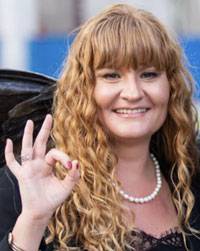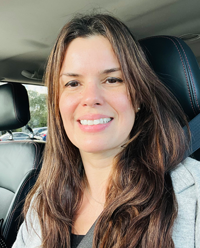About The Center for Peace, Justice, and Human Rights (PJHR)
The Center for Peace, Justice and Human Rights (PJHR) grew out of the Peace Studies Program which was established at Florida Atlantic University approximately twenty years ago. The commitment of the University to the themes of the Center is profound and led to PJHR being included as one of nine key platforms in the University's current strategic plan. PJHR is a multidisciplinary effort that brings together scholars, practitioners, students and community leaders that are invested in the themes of human rights, peace and social justice. This is a University-wide commitment to issues of global importance that affect the South Florida area.

Angela D. Nichols, Ph.D.
Dr. Angela D. Nichols is the Director of the Center for Peace, Justice and Human Rights (PJHR). She is also an Associate Professor in the Department of Political Science at Florida Atlantic University. Dr. Nichols earned her Ph.D. in Political Science with subfields in International Relations and Comparative Politics from the University of North Texas. She also holds a B.A. in International Relations from The Pennsylvania State University. Professor Nichols’ research broadly focuses on issues related to human rights and conflict. Her book Impact, Legitimacy, and Limitations of Truth Commissions examines how truth commissions contribute to peace and human rights following periods of conflict or mass abuse. She has published articles in the Journal of Conflict Resolution, International Studies Perspectives, Conflict, Security, & Development, Dynamics of Asymmetric Conflict, Civil Wars, and TRAMES: A Journal of the Humanities & Social Sciences. Her analysis can also be found in The Conversation and Political Violence at a Glance. Dr. Nichols’ newest work examines the causes and consequences of women’s engagement in rebel groups. For more information please visit her website: http://angeladnichols.weebly.com/
Luciana De Souza, M.Ed.
Hi, my name is Luciana De Souza, but everyone calls me Lucy. I am Florida Atlantic University double alumni. I got my Bachelor’s in Arts: Interdisciplinary Studies in 2008 and my Master’s in Education Leadership: Higher Education in 2010. I started working towards my Ed.D. (Doctor of Education) in Education Leadership, however, I stopped in the middle of the program because I had my first daughter! I have worked at Florida Atlantic University since November 2003 at the Student Accessibility Services (SAS). I was the Coordinator of Testing Services at SAS, Student Affairs. The majority of students registered with SAS require exam accommodations in order to obtain equal access to the educational environment. I helped students with all types of disabilities by explaining and enforced SAS/FAU’s exam policies and procedures, administered exams with approved accommodations (including assistive technology) and conducted testing orientations. I made sure all students followed the FAU Code of Academic Integrity and I maintained the integrity of all exams that SAS proctored.
In January 2024, I started my new role as a Coordinator of Interdisciplinary Programs, College of Arts and Letters and I love it! I am located at AH 52, Room 211.
My office hours are Monday – Friday from 8am – 5pm. My email address is Llima5@fau.edu and my direct extension is 561.297.4801.
Mission Statement
Who We Are
Launched in 2014, the Center for Peace, Justice and Human Rights (PJHR) grew out of FAU’s highly successful Peace Studies Program, which was founded in the Dorothy F. Schmidt College of Arts and Letters in 1999. (PJHR) is a university-wide, multidisciplinary, and interdisciplinary effort that brings together scholars, students, practitioners, and community leaders engaged in the themes of social justice, human rights, and peace and nonviolence.
Our collaborative community includes students, university staff, and community partners, as well as over 100 Faculty Affiliates who represent disciplines from across the university and FAU’s six campuses. Our goal is to create positive change locally, nationally, and internationally by advancing knowledge and bold solutions to social problems through our research, teaching, and community engagement.
Our world faces a host of social, political, public health, economic, environmental, and other challenges that lay bare the ongoing and stark inequalities, inequities, and violence people face all around the world. As we work to meet these challenges, we are committed to upholding the following values:
- Universal human rights.
- Equity and social justice
- Peace and nonviolence.
- Community engagement.
- Critical inquiry.
- Mindfulness.
- Collaboration and dialogue.
- Asking difficult questions.
- Seeking innovative solutions.
What We Do
We develop innovative approaches to studying and actively advancing peace, social justice, and human rights. PJHR’s main activities fall into the following categories:

